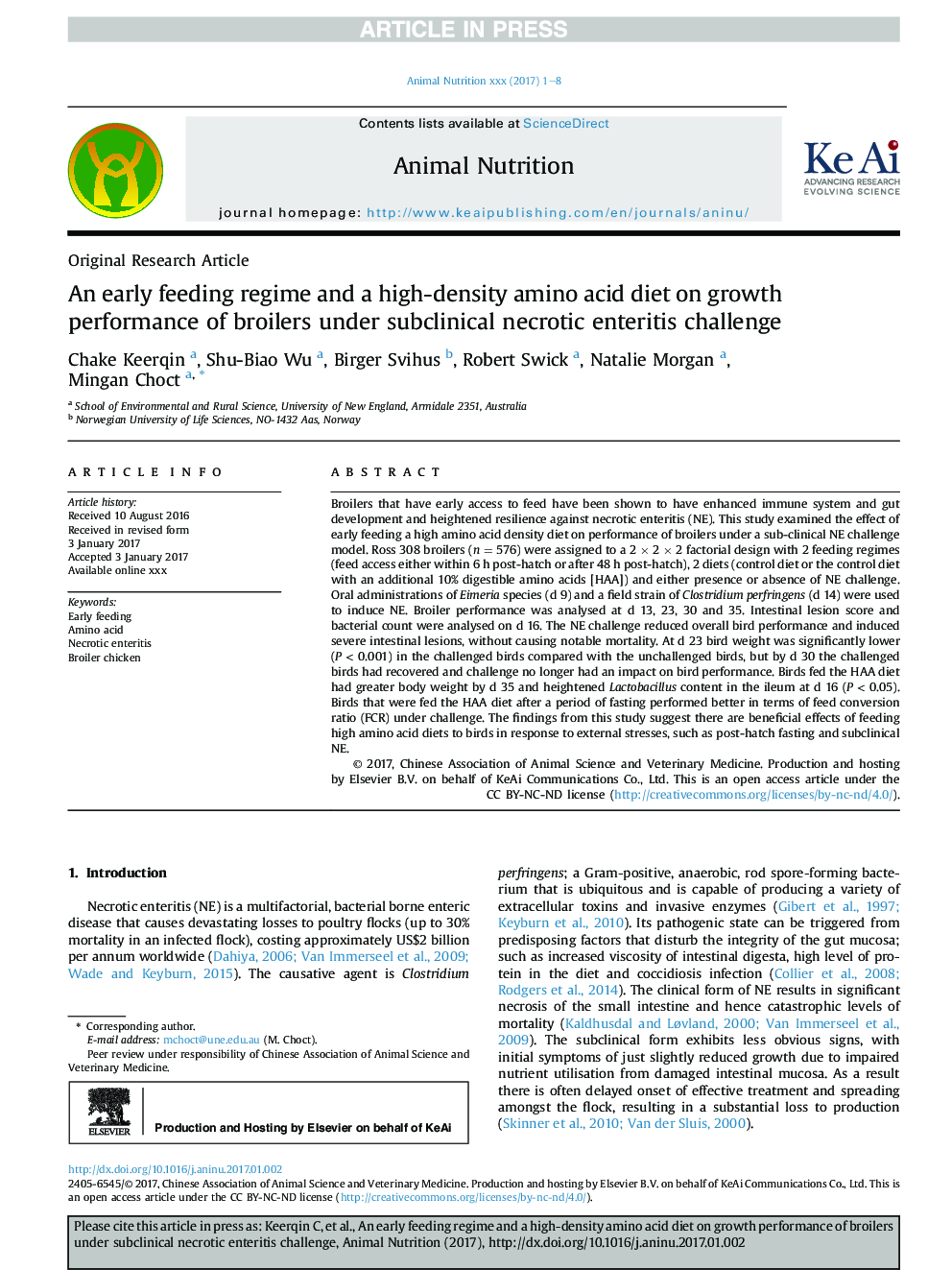| Article ID | Journal | Published Year | Pages | File Type |
|---|---|---|---|---|
| 8882612 | Animal Nutrition | 2017 | 8 Pages |
Abstract
Broilers that have early access to feed have been shown to have enhanced immune system and gut development and heightened resilience against necrotic enteritis (NE). This study examined the effect of early feeding a high amino acid density diet on performance of broilers under a sub-clinical NE challenge model. Ross 308 broilers (n = 576) were assigned to a 2 Ã 2 Ã 2 factorial design with 2 feeding regimes (feed access either within 6 h post-hatch or after 48 h post-hatch), 2 diets (control diet or the control diet with an additional 10% digestible amino acids [HAA]) and either presence or absence of NE challenge. Oral administrations of Eimeria species (d 9) and a field strain of Clostridium perfringens (d 14) were used to induce NE. Broiler performance was analysed at d 13, 23, 30 and 35. Intestinal lesion score and bacterial count were analysed on d 16. The NE challenge reduced overall bird performance and induced severe intestinal lesions, without causing notable mortality. At d 23 bird weight was significantly lower (P < 0.001) in the challenged birds compared with the unchallenged birds, but by d 30 the challenged birds had recovered and challenge no longer had an impact on bird performance. Birds fed the HAA diet had greater body weight by d 35 and heightened Lactobacillus content in the ileum at d 16 (P < 0.05). Birds that were fed the HAA diet after a period of fasting performed better in terms of feed conversion ratio (FCR) under challenge. The findings from this study suggest there are beneficial effects of feeding high amino acid diets to birds in response to external stresses, such as post-hatch fasting and subclinical NE.
Related Topics
Life Sciences
Agricultural and Biological Sciences
Animal Science and Zoology
Authors
Chake Keerqin, Shu-Biao Wu, Birger Svihus, Robert Swick, Natalie Morgan, Mingan Choct,
